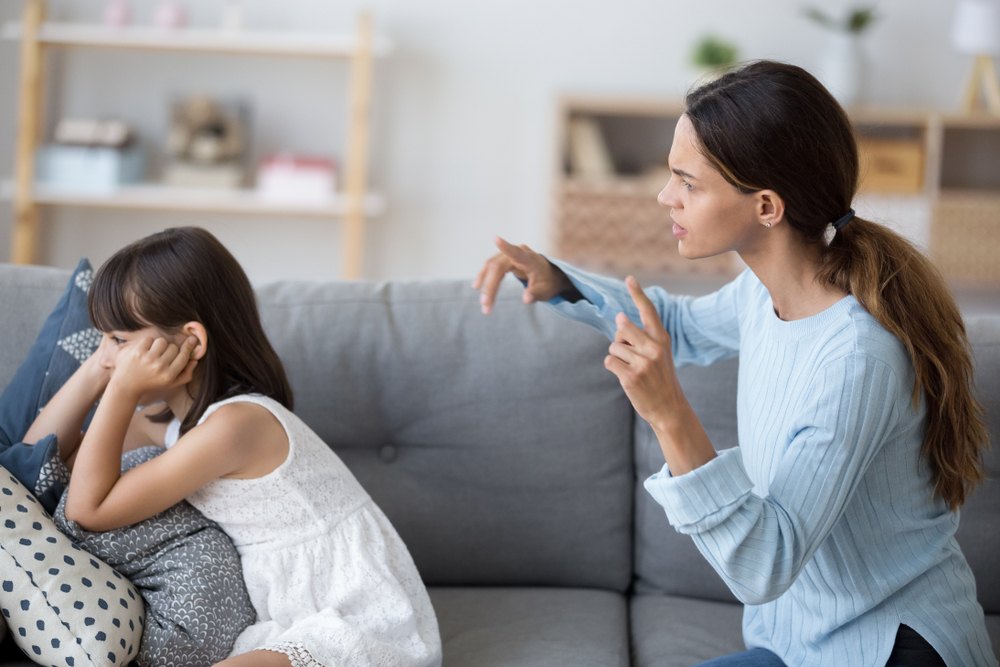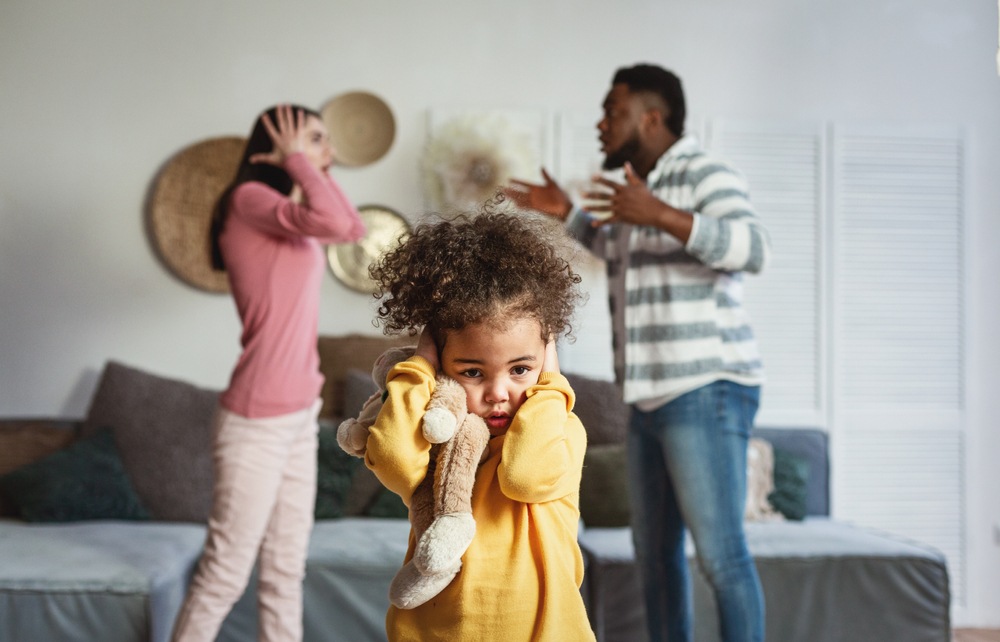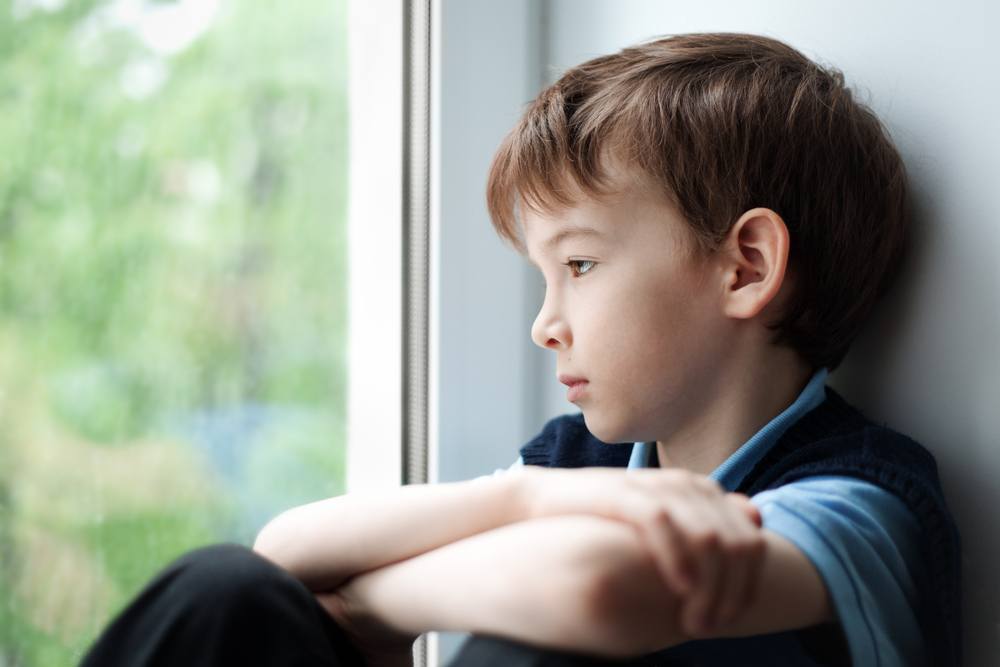The Disturbing Facts And Effects Of Verbal Abuse On Children

You’re living your life as usual: you work, eat, sleep, maybe go for a jog or seeing a friend. Sure, occasionally you make mistakes too, like switching the lights off accidentally or spilling your coffee – but life goes on, right?
That, my friend, is called the privilege of adulthood. It’s not being afraid to make a mistake or ask a question. It’s being supported and understood by your family even when you have a rough day or say something inappropriate.
Too many children don’t have that privilege.
Approximately 700,000 children are abused in our country every year – and those are only cases reported to authorities. We will probably never know the real number of kids who need help, who are neglected, verbally or even physically abused.
Of all the forms of abuse on children, verbal abuse is the most overlooked. What’s worse, even your child may be suffering from it and you might not even realize it yet!
Today, I’ll address one of the biggest problems in our society. Please read on to find out how to spot verbal abuse and learn how to help your child live a better life from now on.

What is verbal abuse?
Many people don’t even realize they’re verbally abusing their child, so let’s set some scientifically-approved boundaries here. Experts say that a child is verbally abused through any of the following:
- Name-calling, insulting, belittling
Example: You’re so rude! You never pay attention to anything. - Indirect criticism
Example: You’re talking to your spouse about your child’s mistakes in front of the child. - Threatening
Example: Cry one more time and I’ll give you a real reason to cry! - Blaming
Example: If you weren’t so reckless, your brother wouldn’t have fallen! - Using sarcasm
Example: Saying something like ‘Wow, you’re a genius’ when your child breaks something
Did you know that even berating your own spouse in front of your child counts as verbal abuse? A study from the University of Maryland, Baltimore County, found that children who witness verbal abuse between their parents feel more depressed, anxious and have more trouble establishing social connections themselves.
How to recognize verbal abuse
If you’re not verbally abusing your child, it doesn’t mean they don’t fall victim to this destructive habit. Sometimes even the nanny or daycare teacher can do it (subconsciously or not). Here are the main signs:
- Poor self-image. This is often the first and most common sign of verbal abuse. If your child suddenly seems to lack motivation or says things like ‘Nobody likes me,’ their self-confidence might be ruined. Other signs are social withdrawal and sadness. The National Committee for the Prevention of Child Abuse describes this sign as attacking ‘a child’s sense of worth.’
- Antisocial behavior. Verbally abused children are much more likely to perform acts of physical aggression, cruelty to pets and even interpersonal problems later on in life.
- Delayed development. Long-term verbal abuse can slow your child’s social, academic, emotional and even physical development. This translates into an inability of socializing with other children, poor school grades or even behavioral regressions such as rocking or thumb-sucking again.
- Self-destructive habits. If you notice your child trying to harm himself (trying to use razor blades or knives) or performing dangerous activities, it can also be a sign of verbal abuse.

Does verbal abuse have long-term effects?
Absolutely yes. People who were verbally abused during childhood are more prone to depression, anxiety and OCD; they can continue to carry self-destructive acts throughout their life (which can translate into alcoholism or drug use once they reach adulthood).
These people’s emotional instability can lead to toxic relationships; they may subconsciously seek social situations (such as workplace positions) where they’re verbally abused again because that’s what they’re used to.
If you think your child (or another child) is verbally abused…
Unfortunately, even if you’re the best parent in the world, your child is still exposed to other adults who may be bad-tempered or not-so-well intentioned.
Teachers, coaches, siblings, friends, babysitters are just a few examples of people who might verbally abuse your child.
In this case, it is crucial that you listen to your child daily: how has their day been? What was the piano lesson like? How did they spend the day with their nanny? Sometimes it may take more than a few questions to help your child open up about verbal abuse, because it’s such a traumatic experience. Keeping a close, friendly relationship is key.
If you’ve witnessed a case of verbal abuse on another child, you can contact the local Child Protective Services (CPS) and report the event. These professionals will analyze your report and start an investigation if they think it’s necessary. Your report stays confidential throughout the entire time.
Are you likely to verbally abuse your child?
It’s very easy to spill our negative emotions on our children – especially in 2020 when we’re all over-stressed.
But that’s not an excuse.
It may not seem like a big deal to you. After all, children can forgive anything instantly, right?
Maybe, but your words leave a deep mark that will affect their lives forever.
The American Academy of Pediatrics recommends parents to use the RETHINK method to regain control over your feelings before you say anything you’ll regret:
- Recognize your own emotions.
- Empathize with your child’s current situation.
- Think of that certain problem differently (maybe in a funny way).
- Hear what your child is saying; in other words, do not ever tell them to shut up.
- Integrate your endless love towards your child; let it flow over your anger.
- Notice how your (angry) body is relaxing and calming down.
- Keep staying mindful and be present to solve the problem with your child.
If you think you need help to manage your own emotional state, you can always ask for professional help. Now you can even opt for online therapy to stay safe pandemic-wise.
![]() Has your child ever been verbally abused? Let’s share our experiences about this problem along with solutions in the comment section for a better, happier life!
Has your child ever been verbally abused? Let’s share our experiences about this problem along with solutions in the comment section for a better, happier life!


